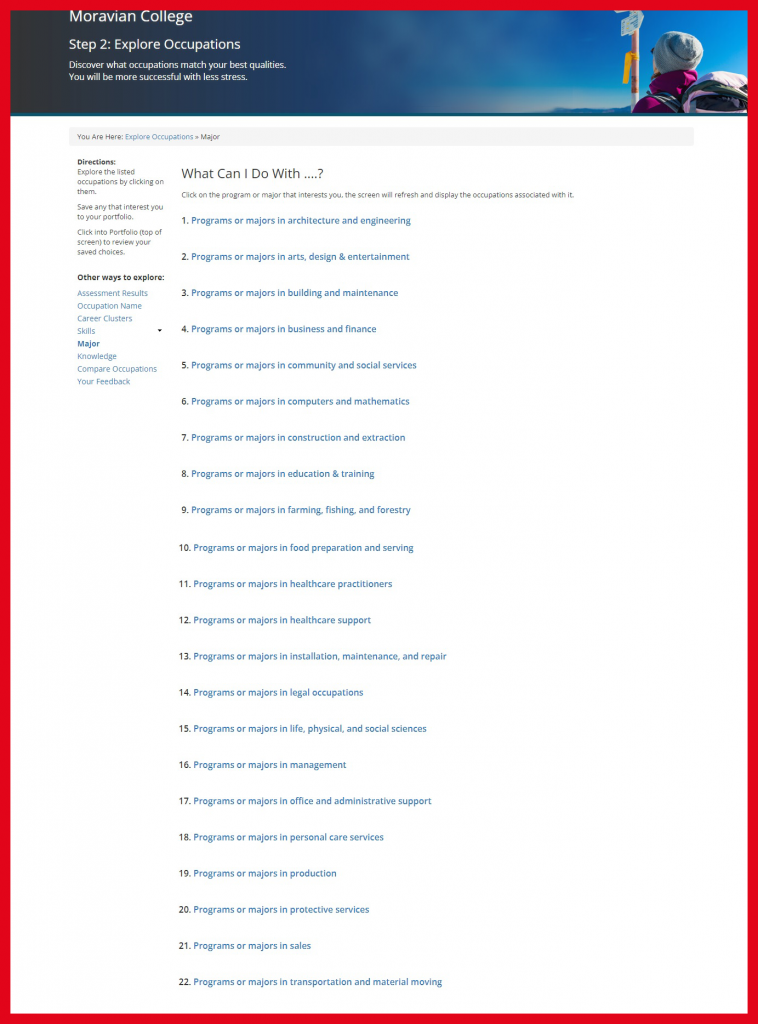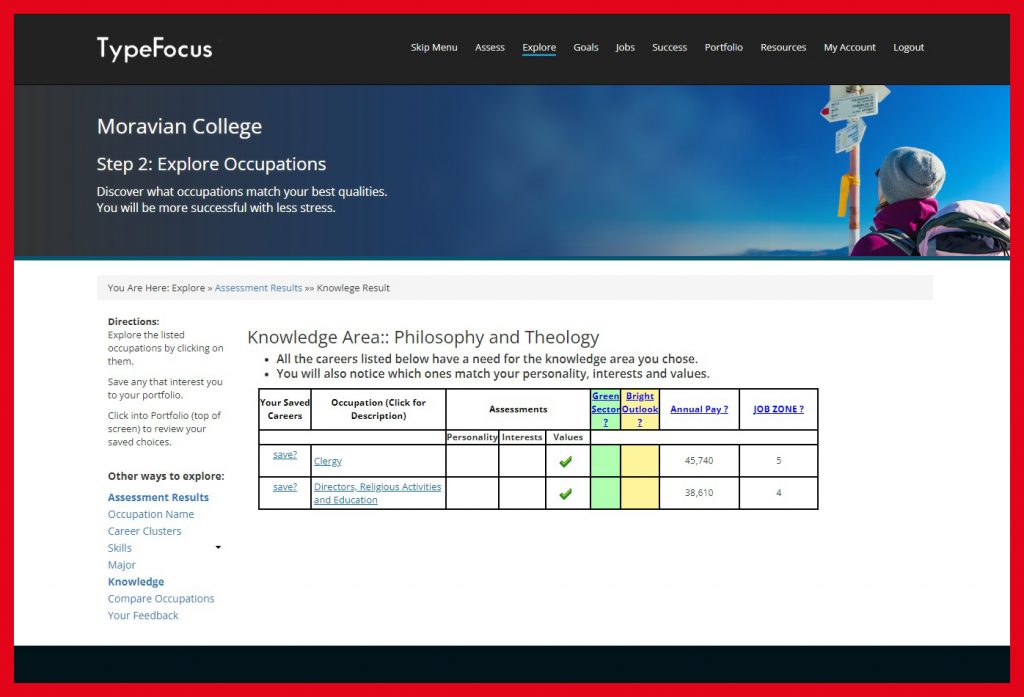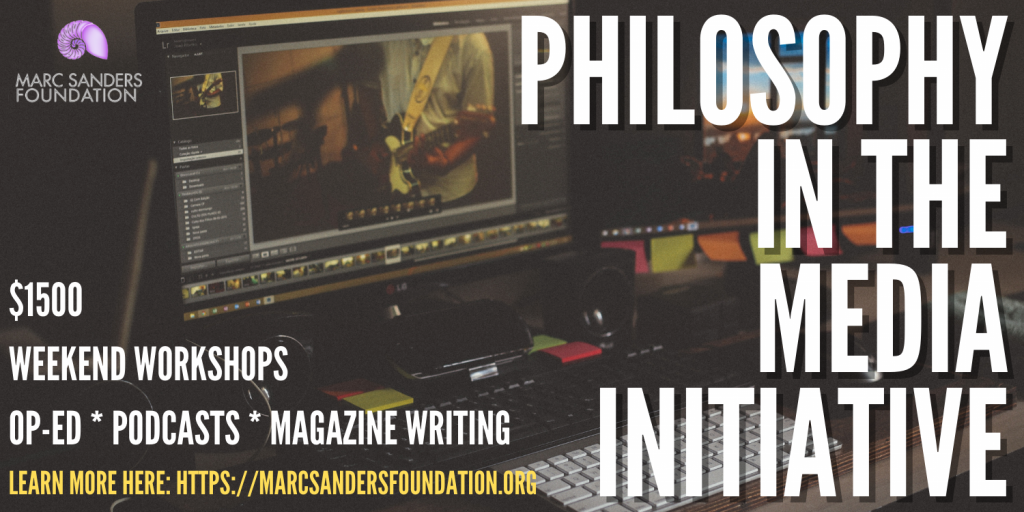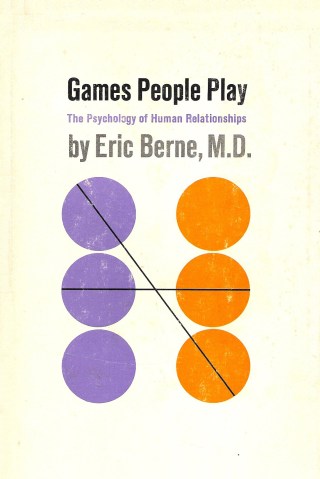That this career assessment software, which boasts about its accuracy, would list just two options here—and these two in particular—reveals it to be woefully underinformed at best, and it is rather disappointing that any institutions of higher education are using it.
After students get labeled a “type,” Dr. Cheung says, “they are then encouraged to explore majors that may be suitable for them. Under “What Can I Do With…?” there are 22 different programs/major groups, but the humanities are conspicuously absent”:
Moravian is not the only university using TypeFocus. Others include Briar Cliff University, Tennessee Tech University, University of Detroit Mercy, York Technical College, Eastern Kentucky University, Washtenaw Community College, and more. (There is no publicly accessibly centralized list of schools using TypeFocus, but there is a list of its “certified practitioners” here.) You may want to check to see if your school uses it.
The program uses a 15 minute test to assign students a Myers-Briggs Type Indicator (MBTI) “personality type”. As Dr. Cheung noted in a letter to colleagues, “the MBTI lacks validity (accuracy) and reliability (consistency) and therefore provides little in the way of evidence-based personality testing. Experts in personality psychology… agree that due to poor validity and reliability, the MBTI is little more than pseudoscience.” For a survey of some criticisms of the MBTI, see this.



The software was brought to my attention by Kin Cheung, an assistant professor at Moravian University, one of the schools that use it.
Some universities and colleges are spending money to have their students use a career advising software, TypeFocus, that appears to be based on pseudoscience, biased against the humanities, and severely misinformed.




